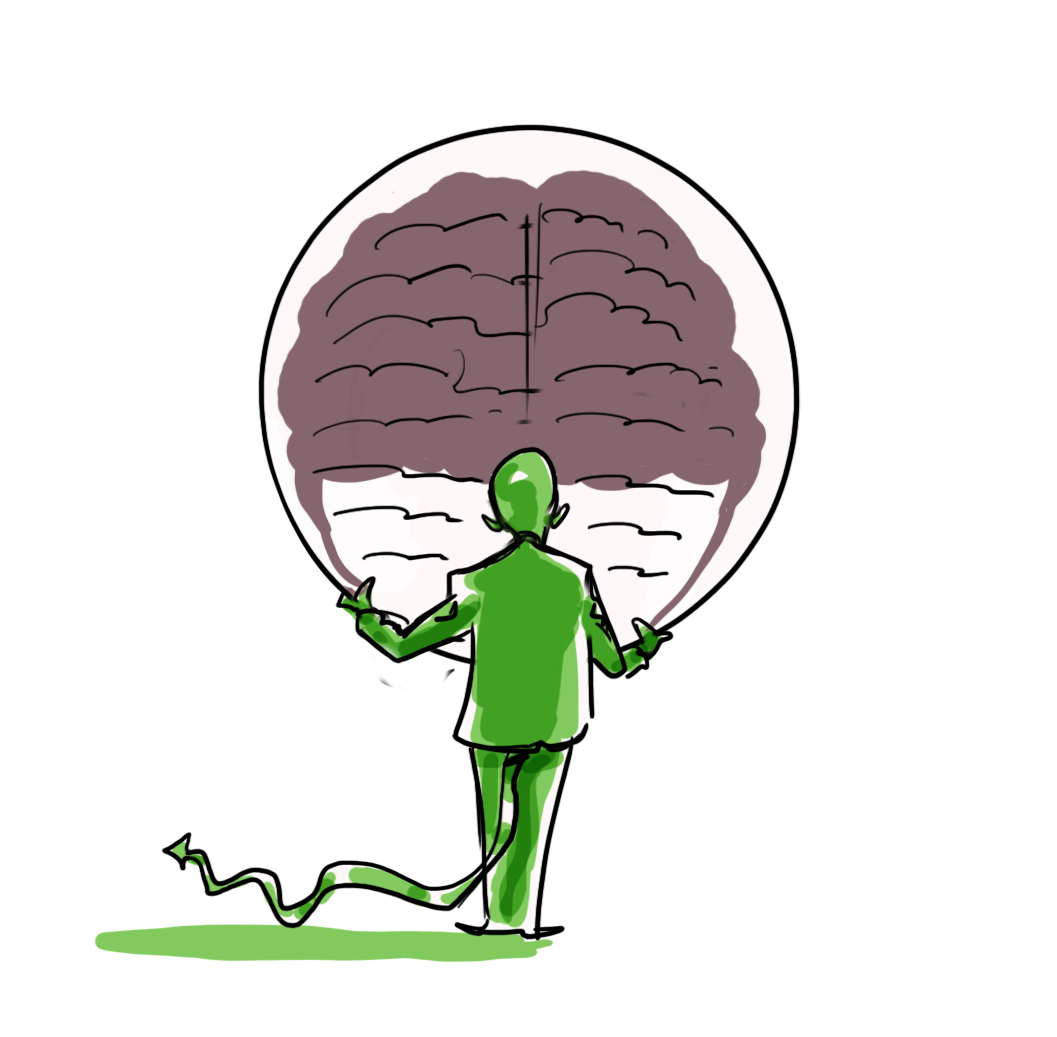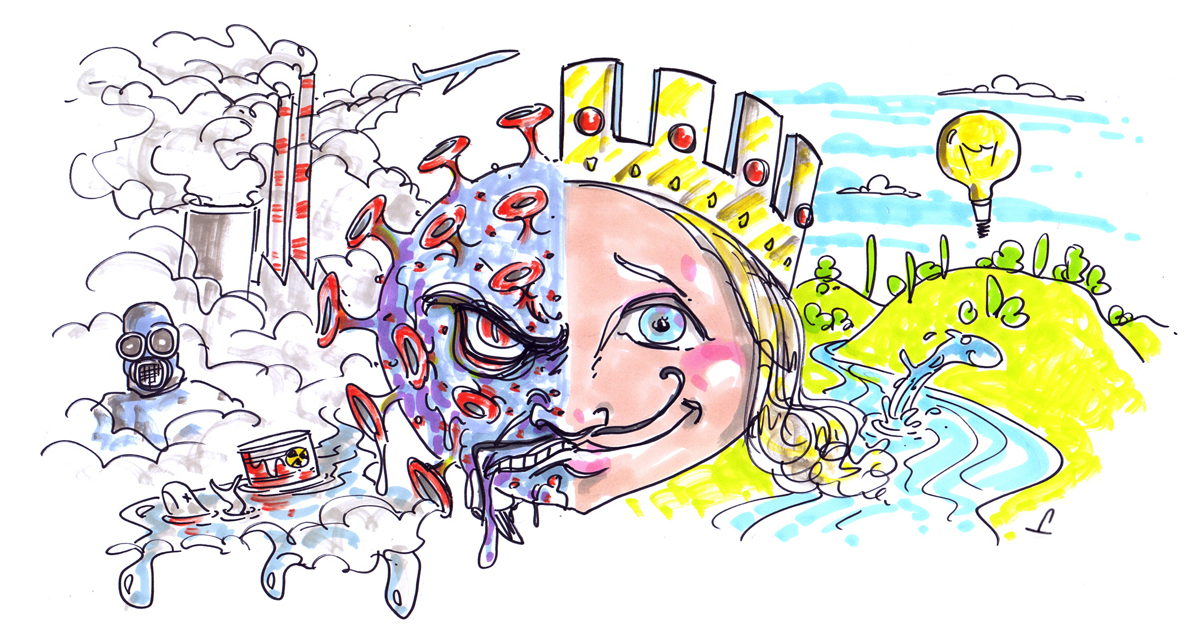One could focus on people’s demagogy, cynicism, irrationality, ignorance and superficiality, when reflecting upon the coronavirus’ effects on our lives. I am sure everyone has by now seen or experienced at least one of those irritating human behaviours.
One could even sadistically laugh at all the mistakes, which governments and institutions are naturally making, whilst trying to understand and face an unknown threat.
One could. But I won’t.
“Mum, I’ve just finished my 4 hours of remote lessons today and it was great!” – my 16-year old daughter suddenly cries out in surprise, interrupting my work.
“That’s great, dear!” I reply enthusiastically. “ I had a great morning too. I finally managed to reorganise my working plan; I did my Admin in a flash and had a few very good calls with a couple of clients. I even managed to remotely chair our Monday morning staff meeting”.
“Cool! What’s for lunch?” she continues.
“I was thinking of getting some nice pasta pomodoro e basilico ready in about 10 minutes. Do you fancy it?” I suggest.
“I’d love that! What about Dad? Is he leaving to London?” she asks.
“No, he isn’t” I reply. “He cancelled the trip because his British colleagues are “uncomfortable” with him travelling from Italy. He is busy with a conference call right now. But he should finish shortly. We’ll all have lunch together”.
“That’s great!” – my daughter exclaims, whilst trotting happily back to her room.
This scene comes straight out of our current home-bound existence, in Northern Italy, whilst the rest of the Western world looks at us in terror, convinced by the media, that we are dealing with some kind of bubonic plague.
Don’t get me wrong! I am not trying to minimise the situation at all. The coronavirus is still an unknown illness, with a handle-with-care tag written all over it! This is why our scientists are tirelessly trying to make sense of it and we are (almost all) abiding by their instructions.
This illness is still an enigma, spreading fast and easily. If not controlled, it can put the health system of any country under severe danger. It has however been proved that the vast majority of infected people survive it and a lot of us have it, without even realising.
So, this virus is a natural threat, which deserves to be labelled as a “force majeure” event. But it is one which – scientists are sure – will be overcome by humanity.
One more good news is that, like in most human misfortunes, we will have learned a few lessons along the road to salvation. And our existence will be enriched more than we can now, in fear, think of.
Why?
Because in adversity there is always opportunity.
Over the last 10 days, since the emergency broke in Italy, I have been observing people, talking to friends, family and colleagues. I have been reading articles, tweets, posts and comments.
I have been, above all, in listening mode.
And I have concluded that this situation of forced change, is hiding a few silver linings, which are throwing a bright light onto the darkness of our fears.
Let’s look at the half full glass, shall we?
This global health emergency, imposed on us by an unexpected external menace, obliged us to change many standardised behaviours, which we normally wouldn’t have liked to alter or wouldn’t have been allowed to in any case. What I observed, are actually new habits, which I will pray will stay for ever.
This is my list of observations.
Focus
for what is really important, has dramatically improved.
We are learning to prioritise more and more, because there is less time available together and decisions still need to be taken to push our work and our life forward.
Despite the abundance of noise around us, we do not get distracted.
We stay focused.
And we soldier on.
Resilience
Notwithstanding all the restrictions imposed by the protocols and people’s hysterical reactions (like emptying supermarkets as in war times), the majority of us is pushing one’s own boundaries.
We are striving to adapt to our new life.
Doctors and nurses are surviving horrendous shifts and more and more people are volunteering to give their help.
Workers at all levels, students, families – everyone really – are reorganising their schedule every single day. People need to think hard to come up with creative solutions to new, unexpected problems.
Milan’s mayor, a few days ago, started his #milanononsiferma (Milan doesn’t stop) campaign, which became quickly viral. Every infected region in Italy followed, calling onto the pride and the inner strength of the whole Nation.
Community
We finally discovered that we need others and that we care for people, when life throws a bad card at us.
Illnesses are very democratic. They hit everyone, regardless of social background, race or gender.
In an age also known for its deep crisis of human values and, I’d add, in a country characterised by sheer selfishness, politicking and smacks of careerism, the population is rediscovering the strength of community. Apart from some isolated unrecoverable cases, most of us are rediscovering two of our best human traits: solidarity and compassion.
Adapt or die mentality
Survival sometimes is about looking at changing our modus operandi, as the only solution to stay alive.
Humans, then, quickly get organised. Better. More efficiently. More quickly.
The result is, often, a staggering improvement over what we thought was already working before.
In this last couple of weeks, for example, Italians have decided that it was time to start using existing technology to win over the impasse, to move their life forward.
In business,
we are finally looking at a significant uptake of smart/mobile/agile working.
A special government decree is, in fact, in place to encourage remote work and a lot of businesses are now taking advantage of this new opportunity.
Italy is realising, despite its former fear for its broadband’s weakness, that working remotely is possible.
And it is efficient (savings in fixed costs and higher productivity).
It reduces environmental impact.
It provides all workers with a better equilibrium between professional and personal life.
Our mental health is benefiting from more time spent with our beloved. We feel happier and, therefore, more eager to get back to work.
A positive mindset has super powers:
it gets even the most complex problems solved.
Adaptation of business models is currently being discussed as well. For example, for a country like Italy, which produces excellence in fashion and design, does it still make sense having most supply lines in Asia?
New market opportunities are also coming to fruition: apart from the very happy producers of surgical masks, alcohol-based detergents or future vaccine producers (lol), e-businesses are now looking at more than one window of opportunity. And they are not the only ones.
In education,
students are now attending remote learning classes.
Universities and schools got organised in a very short period of time and are providing a great service to their pupils in order to not disrupt the academic year further.
Distance learning, combined with smart working, are also enriching our family lives: having lunch around the table all together, spending quality time with our family, talking about our fears, reasoning the situation out.
When our kids eventually go back to their normal school routine, when we and our partners go back to our normal lives, we will miss all of this and we should remember how worthwhile family time was, away from our mobile phones.
We should remember how much more effective we were, without the comfort of an office life.
So, why not encouraging a combination of remote and physical work and studying, as a new productivity model?
In personal life,
e-shopping for food and for various other services has become very popular.
It is solving, for example, huge problems to the isolated people in the red zones (those with the highest spread rate of the virus). Online shopping is something Italians have always been slow to take up, for their mistrust in digital payments. In a sink or swim situation, even fears can turn into solutions.
Not to speak about today’s ease of communication, which may be also in the process of improving out of the digital world: some of us may be listening to our family and friends more intently, because – threatened by the unknown – we feel we can’t take them for granted anymore.
Every cloud has a silver lining.
This global epidemic, beyond spreading fear and uncertainty, is also having multiple merits.
It is pushing humanity closer.
It is making humanity braver, stronger and more focused.
It has truly transformed technology into a dear friend, the ally per excellence.
A vehicle to specific knowledge, which is playing a fundamental role for our scientists to make sense of this virus and to, eventually, tame this storm.
My hope is that, during these unusual times, we will learn intelligently from all our good and bad decisions and that we will use all of this new knowledge to virtuously improve our human condition, for us and for the generations to come.
To find out what we do in change management, see here.
For our C-suite management services, read here.
To understand which type of professional training we deliver, discover our Corporate Learning programmes.
If you are interested in our story, check us out here.



